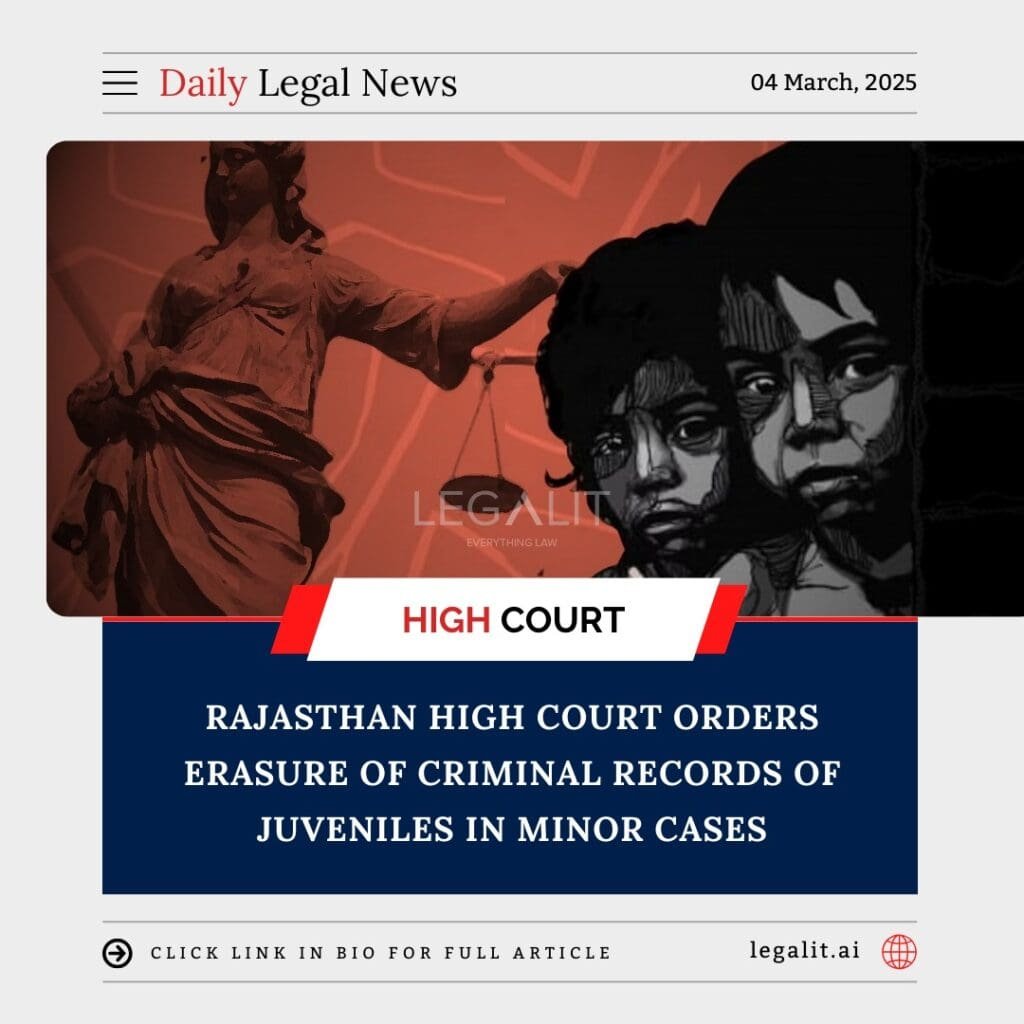
Background
The Rajasthan High Court has directed the removal of criminal records of juveniles involved in minor offenses, reinforcing the principle that children in conflict with the law should be given a fair chance at rehabilitation. The ruling came in response to petitions challenging the retention of past criminal records, which often act as a barrier to education, employment, and social reintegration for young offenders.
The case was initiated after a petitioner, who had been accused of a petty offense as a minor, faced repeated difficulties due to the existence of his criminal record. He argued that despite being acquitted and having no further criminal history, his past offense continued to appear in police databases, affecting his ability to lead a normal life.
Court’s Rationale
The Rajasthan High Court emphasized several key legal and constitutional principles while delivering its ruling:
- Right to Privacy and Dignity: The Court noted that retaining a juvenile’s criminal record violates their right to privacy and dignity under Article 21 of the Constitution. A person who has served their sentence or has been acquitted should not be haunted by past mistakes, particularly when they were committed during childhood.
- Rehabilitation and Reintegration: Under the Juvenile Justice (Care and Protection of Children) Act, 2015, the emphasis is on reformation rather than punishment. The Act recognizes that children are capable of change and should not face lifelong consequences for minor infractions.
- Equal Opportunity Principle: The Court highlighted that retaining juvenile records unfairly affects future job prospects, educational admissions, and social standing, contrary to the constitutional promise of equal opportunity (Article 14).
- International Conventions: India is a signatory to the United Nations Convention on the Rights of the Child (UNCRC), which stresses that juveniles should not suffer long-term consequences for their past actions. The Court aligned its judgment with these international norms.
Existing Measures
The Juvenile Justice Act already provides for the automatic destruction of records of juveniles convicted of minor offenses once they reach adulthood. However, in practice, records often remain in police databases, leading to continued harassment and social stigma.
To ensure effective implementation of this law, the Rajasthan High Court directed:
- Immediate removal of all juvenile criminal records from police databases if the offense was petty and the individual has since reformed.
- Strict compliance by law enforcement agencies in ensuring that past records are not considered in job applications, background checks, or any official scrutiny.
- Periodic audits to ensure that police databases do not retain information on juveniles beyond the legally permitted period.
Conclusion
The Rajasthan High Court’s ruling is a landmark decision reinforcing the idea that juveniles should not be permanently stigmatized for mistakes made in their youth. By directing the erasure of criminal records for minor offenses, the Court has ensured that young individuals are given a genuine chance at rehabilitation and reintegration into society. This judgment not only upholds the spirit of juvenile justice laws but also aligns with global standards on child rights and legal reform.